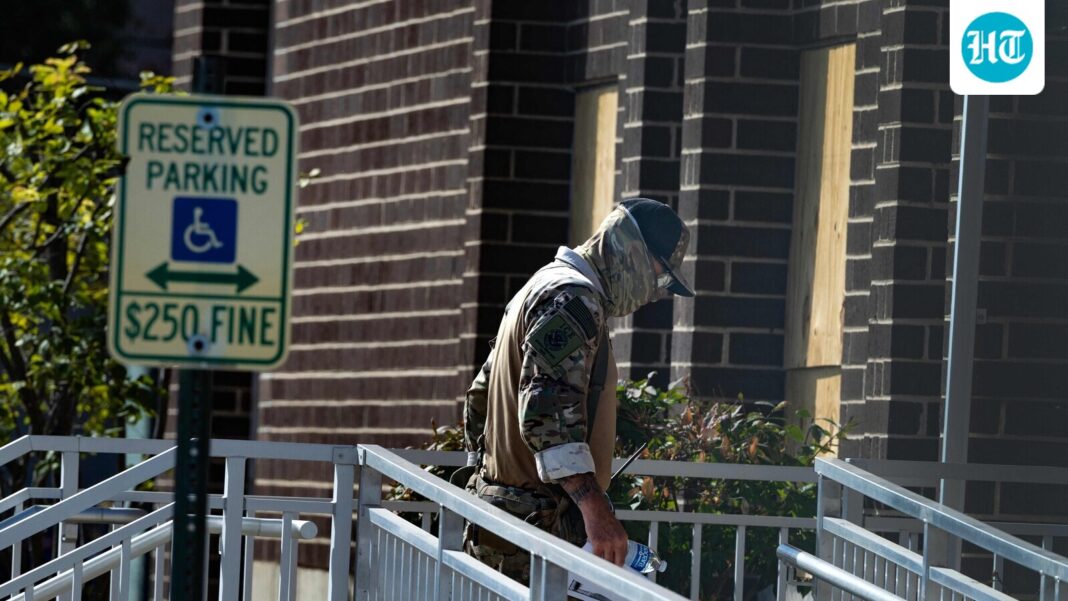ICE Raids in Chicago: A Closer Look at Recent Claims
Recent events in Chicago have sparked a firestorm of controversy, particularly surrounding the actions of Immigration and Customs Enforcement (ICE) in the South Shore area. As details emerge about a raid that took place overnight, both residents and online commentators have voiced their concerns and allegations regarding the implications of such government actions.
The Raid and Its Immediate Impact
On the night of September 30, 2025, ICE, alongside allied federal agencies such as the Border Patrol, FBI, and ATF, executed a significant operation targeting a South Shore apartment building. This area has reportedly been under scrutiny due to its connections with Tren de Aragua, a group involved in various criminal activities, including drug trafficking. During this enforcement operation, 37 arrests were made, highlighting the federal government’s focus on combating organized crime.
Witness accounts from residents paint a harrowing picture of the raid. One resident described the chaos as they felt vibrations from what they identified as a Blackhawk helicopter overhead. Others recounted being detained without clear explanations, with one individual stating, “They just treated us like we were nothing.” This sentiment was echoed by multiple witnesses who expressed feeling dehumanized during the encounter.
Allegations of Racial Profiling
Following the raid, allegations began to circulate online, particularly on social media platform X, claiming that ICE had specifically targeted Black individuals. One post went viral, alleging that agents separated residents by race while detaining them, and distressingly claimed that young children were zip-tied during the operation.
Some witnesses backed these claims, sharing their experiences of being transported in different vans based on their race. A chilling statement from one resident suggested that law enforcement officers demonstrated a troubling indifference, reportedly laughing while discussing the distress of families affected by the raid. Such alarming testimony raises critical questions about the tactics employed by ICE and the broader implications for community relations.
Official Responses and Justifications
In response to the outcry, officials from the Department of Homeland Security confirmed the operation and justified it based on the criminal activities they allege were occurring in the area. They emphasized that the targeted individuals were suspected of serious offenses, including drug and weapons crimes, as well as immigration violations. This assertion of a tactical motive, however, does little to quell the fears and suspicions among community members, many of whom feel the operation was excessively forceful and racially charged.
Community Reactions and Ongoing Conversations
The events have ignited discussions about immigration policy, racial profiling, and law enforcement practices in the U.S. As Chicago braces for potential military deployment in response to rising crime rates, the intersection of these issues only complicates the narrative surrounding both crime and immigration enforcement within marginalized communities.
The chilling reports of how families were treated raise crucial questions about the balance between maintaining public safety and upholding the dignity and rights of all residents, regardless of their immigration status. As community leaders and activists call for investigations into the tactics used by ICE, the broader implications of this raid will likely continue to resonate throughout Chicago and beyond.
Residents find themselves at a crossroads, grappling with the fear of federal intervention while questioning the motivations and methods of law enforcement. As the city navigates these turbulent times, the need for transparency and accountability has never been more pressing.
This ongoing dialogue highlights the complexities of modern law enforcement in a nation where socio-political dynamics continually evolve. The actions taken by ICE may serve as a catalyst for change in how law enforcement engages with communities, particularly those most vulnerable to the impacts of federal policies.



